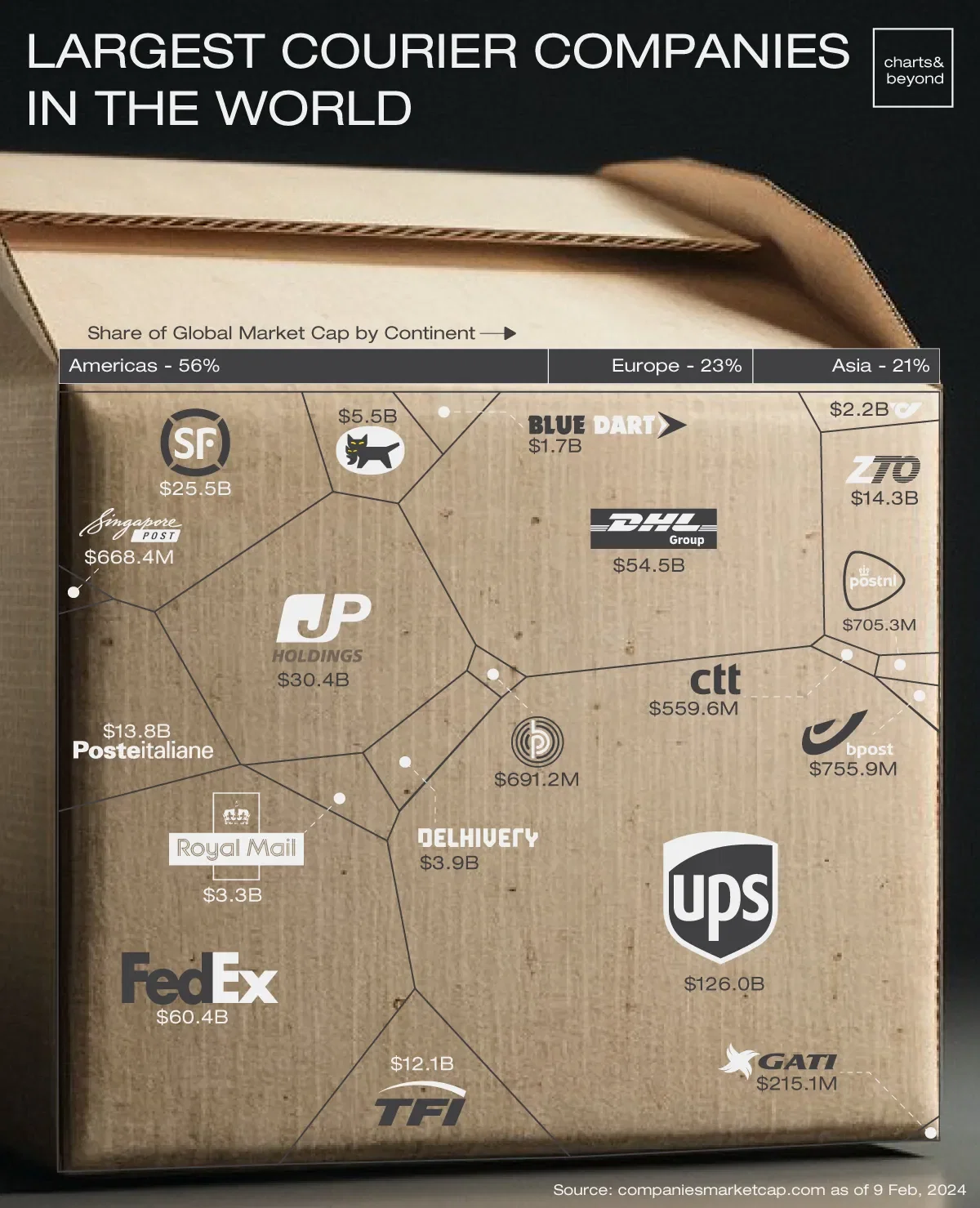Where Data Tells the Story
© Voronoi 2025. All rights reserved.

The continued rise of e-commerce has led to increased demand for courier services worldwide. As more consumers shop online, courier companies must expand their infrastructure and capabilities to meet growing delivery volumes.
Global supply chain disruptions, such as those caused by the COVID-19 pandemic, natural disasters, or geopolitical tensions, can impact courier operations. Delays in shipments, changes in trade routes, and supply shortages may affect the efficiency and cost-effectiveness of courier services. FedEX has started experimenting with AI-powered sorting robots to improve efficiency downstream.
Increasing focus on sustainability and environmental responsibility may lead to stricter regulations on emissions and packaging materials. Courier companies may need to invest in eco-friendly practices and technologies to comply with regulations and meet consumer expectations for environmentally conscious shipping options. UPS uses ORION for delivery router optimization.
Companies do show strong ESG initiatives to demonstrate their commitment to environment responsibility, but could they do better?
How can courier companies balance speed & sustainability for the booming e-commerce market?
Changes in labor laws, such as minimum wage regulations or worker rights protections, can affect courier companies' operating costs and workforce management strategies. Adapting to evolving labor standards while maintaining operational efficiency is crucial for courier companies to remain competitive.
Data as of Feb 9, 2024